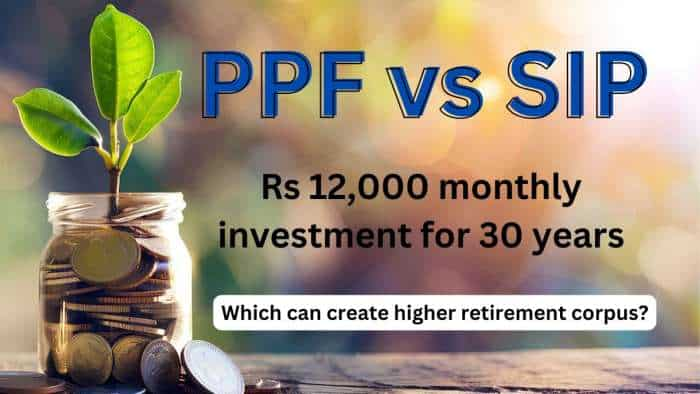Alert! Three Month Tax Saving Exercise: PPF, loans, insurance to education, top investment options for taxpayers
Income Tax Alert: The government has extended the tax filing deadline until June 30, 2020. Now, taxpayers have time to complete their tax-saving exercise for Financial Year 2019-20.

Income Tax Alert: As the Government of India has extended the tax filing deadline until June 30, 2020 from March 31, 2020, taxpayers now have time to complete their tax-saving exercise for Financial Year 2019-20. Amid Covid-19 outbreaks, you will put your efforts to make the best tax-saving investment options available. However, before you put your hard-earned money in buying a tax-saving instrument, it is important to make use of the available deductions and exemptions. In other words, various expenses that you have made come with tax advantages and help you reduce the tax liability for the current fiscal.
Although tax planning is something that should have been done in advance, it's still not too late if you do it correctly in the extended three months. Even if you have not made such expenses, in this article, we will take a look at some of the tax-saving options that will put you on the right track.
See Zee Business Live TV streaming below:
Public provident fund (PPF): You can voluntarily invest in this instrument, considered to be one of the best long-term tax-saving schemes under Section 80C of the Income Tax Act, 1961. You can open a PPF account through net banking which might only take a few days for the complete process. It is a government established savings scheme which is available in almost every bank and post office in India. However, if you have already opened a PPF account before, you can simply transfer the desired amount from your savings account.
Payment of health insurance premiums: The insurance premiums that you pay for yourself and your family can be claimed as a tax rebate. Under Section 80D, you can get a rebate of up to Rs25,000 for family, including self, spouse and children, and another Rs 25,000 for parents. If you are getting insurance for a senior citizen then the maximum limit is Rs 50,000. Most financial planners will suggest starting your tax planning process by buying health insurance.
Home loan principal repayment: In case you have taken a home loan, you can claim the repayment of the principal amount as tax deduction under Section 80C. The equated monthly installments or EMIs that you pay of your home loan makes up both principal and interest. To claim principal repayment as a deduction, you may have to ask your home loan lender to bifurcate your loan repayment amount into principal and interest. You can claim tax benefits for partial or full repayment of the principal amount.
Home loan interest repayment: On the other hand, under Section 24, you can claim a tax deduction for interest part in the EMI as "income from house property". The maximum amount allowed under this section is Rs 2 lakh for the self-occupied property for which the loan is taken. However, if in case you are not staying in the property and is rented out then there is no maximum limit, allowing you to avail the whole interest as a tax deduction.
Tuition fees: If you are a parent, you can claim tuition fees paid for a maximum of two children as a tax deduction, provided that it is under the overall limit of ₹150,000 under Section 80C. However, any amount paid as development fees or donation to institutions does not come under this section. And, in case both the parents are taxpayers, the deduction can be claimed by the parent who paid the tuition fees.
Education loan: You can also claim a tax deduction for interest paid for an educational loan for self, spouse, children, or anyone for whom you are acting as a guardian. However, the educational loans taken for a sibling or relative do not qualify for such tax benefit. The interest paid in a financial year can be claimed as a rebate from the gross total income without any limit under section 80E.
National Pension Scheme (NPS): You can voluntarily invest in this scheme which is another popular low-cost tax-saving option. You can claim deduction up to Rs. 50,000 under section 80CCD apart from the deduction of Rs.150,000 available under section 80C by investing in this scheme.
Tax-saving Fixed Deposits: This option is best for those who are in a hurry to make tax-saving investments and don’t have the time to look around for other options. You need to open a fixed deposit account with a lock-in period of 5 years in a bank to claim deduction under section 80C up to Rs 150,000.
National Saving Certificate: You can invest money in a National Savings Certificate (VIII or IX Issue) which comes with a fixed rate of interest and has a tenure of 5 years. The interest received on NSC is counted as a tax saving option and up to Rs150,000 can be taken as a deduction under section 80C.
Payment of life insurance premiums: The insurance premiums that you pay for yourself and your family can be claimed as deduction from Gross Total Income. Under Section 80C, you can get a deduction of up to Rs150,000 for family, including self, spouse, and children. Most financial planners will suggest starting your tax planning process by buying life and health insurance.
Although investment decisions are not something to be made near the end of the financial year, you can still use these instruments to minimize your tax liability. However, the tax-saving options that you choose are in line with your overall financial goals. Furthermore, make sure that you start your tax-saving planning at the start of the fiscal.
(Authored by Kapil Rana, Chairman & Founder at HostBooks Limited)
Get Latest Business News, Stock Market Updates and Videos; Check your tax outgo through Income Tax Calculator and save money through our Personal Finance coverage. Check Business Breaking News Live on Zee Business Twitter and Facebook. Subscribe on YouTube.
RECOMMENDED STORIES

Largecap, Midcap Stocks To Buy: Analysts recommend buying L&T, Tata Motors, 3 other stocks for 2 weeks; check targets

Power of Rs 15,000 SIP: How long it will take to achieve Rs 7 crore corpus? See calculations to know

Largecap PSU Stock for 65% Gain in New Year: Anil Singhvi picks PSU bank for long term; know reasons and target prices

PPF vs SIP: Rs 12,000 monthly investment for 30 years; see which can create higher retirement corpus

SIP in Stocks For New Year 2025: Market guru Anil Singhvi recommends 1 largecap, 2 midcap scrips to buy in dips; note down targets
10:05 AM IST









 Zomato gets Rs 803.4 crore tax demand from GST authorities
Zomato gets Rs 803.4 crore tax demand from GST authorities  Income tax refunds jump 46.3% to Rs 3.04 lakh crore in April-November
Income tax refunds jump 46.3% to Rs 3.04 lakh crore in April-November No proposal on income tax relief for senior citizens under consideration: Centre
No proposal on income tax relief for senior citizens under consideration: Centre  Income tax return filer base up 2.2 times in 10 years, 5 times growth in Rs 50 lakh-plus income category: Sources
Income tax return filer base up 2.2 times in 10 years, 5 times growth in Rs 50 lakh-plus income category: Sources  This is India's only tax-free state, residents earn crores without paying Income Tax
This is India's only tax-free state, residents earn crores without paying Income Tax